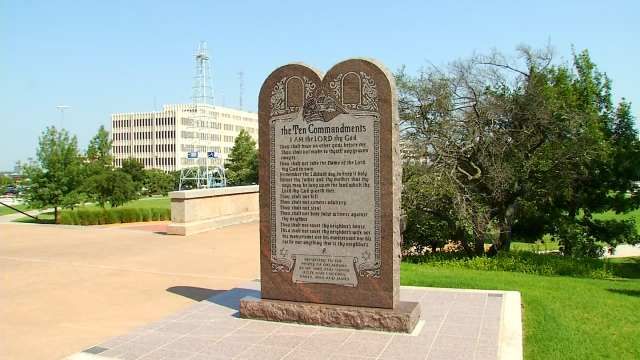In 4 Maccabees 2.5—6, the abbreviation of the tenth commandment occurs in two stages. The author initially cites it in the shortened form, “You shall not desire the wife of your neighbour. or anything that belongs to your neighbour”. He then abbreviates further as he attempts to show that the commandment is the source of his thesis that reason is master of the passions: “And since the law has told us not to desire I could prove to you all the more that reason is able to control desires.” Philo's discussion of the tenth commandment is exclusively concerned with desire as such (dec. 142—53). 15. Paul probably takes over from the LXX rendering the assumption that sexual desire for an illicit object is paradigmatic of all prohibited desire. This scriptural background makes it unnecessary to find here a reference to Adam, as in D. Boyarin's fanciful haggadic reading. According to Boyarin, “the Torah has exacerbated the plight of Adamic humanity because of one provision it contains”. that is. “the command to procreate. and the desire it produces in the members” (A Radical Jew, p. 159). This is the Pauline “other law”, the “law of sin that is in my members" (Rom.7.23). over against which stands the prohibition of the forbidden fruit (Gen.2.17), understood as a prohibition of sexual desire (Rom.7.7). [Frances Watson, Paul and the Hermeneutics of Faith p. 362]
But these dummies don't see the forest from the trees. Yes Paul speaks of 'another law' but - and now I think I have finally closed in on the solution - the commandment 'do not lust' cited in the short form in the gospel and Paul is the one that must have been attested as a monument with the ninth and tenth commandments in 'short form' ('short' relative to the Torah which pretended to be from Moses but everyone knew was really from Ezra). The 'other law' of sin is the Torah.
I know white people think this is crazy but the rabbinic literature attests that the minim juxtaposed the ten commandments (which came from the word of God) from the Torah (which came from the authority of Moses). The missing link was the assumption that there existed monuments displaying the short form thus 'reifying' the abstract concept of the ten commandments as a rival law to the Torah. Now I think it is just a matter of tracking down references to this monument/these monuments in antiquity.
4 Maccabees:
It is for this reason, certainly, that the temperate Joseph is praised, because by mental effort he overcame sexual desire.
[3] For when he was young and in his prime for intercourse, by his reason he nullified the frenzy of the passions.
[4] Not only is reason proved to rule over the frenzied urge of sexual desire, but also over every desire.
[5] Thus the law says, "You shall not covet your neighbor's wife...or anything that is your neighbor's."
[6] In fact, since the law has told us 'do not covet', I could prove to you all the more that reason is able to control desires.
Just so it is with the emotions that hinder one from justice.
[7] Otherwise how could it be that someone who is habitually a solitary gormandizer, a glutton, or even a drunkard can learn a better way, unless reason is clearly lord of the emotions?
[8] Thus, as soon as a man adopts a way of life in accordance with the law, even though he is a lover of money, he is forced to act contrary to his natural ways and to lend without interest to the needy and to cancel the debt when the seventh year arrives.
[9] If one is greedy, he is ruled by the law through his reason so that he neither gleans his harvest nor gathers the last grapes from the vineyard.
In all other matters we can recognize that reason rules the emotions.
[10] For the law prevails even over affection for parents, so that virtue is not abandoned for their sakes.
[11] It is superior to love for one's wife, so that one rebukes her when she breaks the law.
[12] It takes precedence over love for children, so that one punishes them for misdeeds.
[13] It is sovereign over the relationship of friends, so that one rebukes friends when they act wickedly.
[14] Do not consider it paradoxical when reason, through the law, can prevail even over enmity. The fruit trees of the enemy are not cut down, but one preserves the property of enemies from the destroyers and helps raise up what has fallen.
[15]
It is evident that reason rules even the more violent emotions: lust for power, vainglory, boasting, arrogance, and malice.
[16] For the temperate mind repels all these malicious emotions, just as it repels anger -- for it is sovereign over even this.
[17] When Moses was angry with Dathan and Abiram he did nothing against them in anger, but controlled his anger by reason.
[18] For, as I have said, the temperate mind is able to get the better of the emotions, to correct some, and to render others powerless.
[19] Why else did Jacob, our most wise father, censure the households of Simeon and Levi for their irrational slaughter of the entire tribe of the Shechemites, saying, "Cursed be their anger"?
[20] For if reason could not control anger, he would not have spoken thus.
[21] Now when God fashioned man, he planted in him emotions and inclinations,
[22] but at the same time he enthroned the mind among the senses as a sacred governor over them all.
[23] To the mind he gave the law; and one who lives subject to this will rule a kingdom that is temperate, just, good, and courageous.
[24]
How is it then, one might say, that if reason is master of the emotions, it does not control forgetfulness and ignorance
